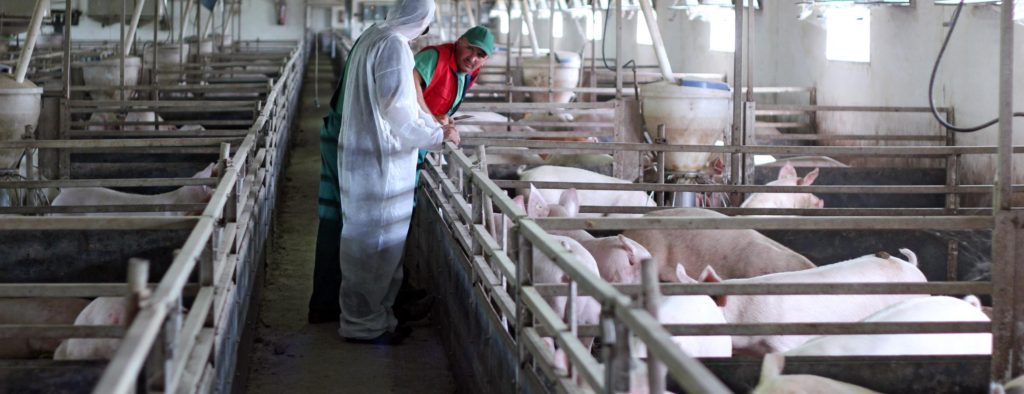Different filters are recommended for a specific farm based on it’s operations. HEPA filters are often recommended due to their 99.97%+ efficiency and ability to catch up to 0.3 micron particle size. The efficiency percentage increases for larger particles and decreases for smaller particles, but as the particle size becomes extremely small, the efficiency actually increases again.
As the filter becomes ‘used’, it becomes more efficient, because trapped particles help to filter an even higher percentage of small particles. Filtration is carried out by three basic means:
1.Impaction: Bigger particles cannot avoid filter fibers. They enter directly. This is the way these bigger particles (>0.4 um) are trapped in the filter.
2.Interception: Smaller particles enter within 1 radium of fiber and stick to it. These particles (<0.4µm) are stick there via van der Walls forces.
3.Diffusion: Brownian motion (turbulence) amplifies the possibility that small particles can be stopped by impaction or interception.
Filter Options
Many manufacturers are concerned with low cost filters. All filters are not equal and present rating systems are not essentially applicable to farming operations. Frame integrity, materials quality etc is more importance to ensure no air bypass. Partial filtration will remain in the market because of cost efficiency.
High Temperatures
By using PRRS virus survivability curve, it might be possible to stop filtration at a certain summer temperature while just taking on least risk of aerosol introduction of the virus. For managing huge air volume through a cool cell in summer ventilation, a filter bank should be nearly 3 times the size of cool cell pad. However, all of this can be very costly. Another application is in farms where the air comes via ceiling inlets year-round. An additional row of inlets might be put in at a quite minimal cost.
Challenges
•How can everything be sealed up? Since the system is based on negative pressure, there is always an issue of minimizing air entrance into the building through the filter.
•Summer filtration. To fulfill the ventilation requirements of a non-air conditioned barn, about three times the number of filters in the summer is required as in the winter.
•All doors must be secured.
•Back-drafting via inactive fans is a problem as fan louvers might stick open and do not give a good seal when closed.
HEPA filters offered by EFS are passing through real transformation in terms of efficiency and advancement, since it is the requirement for increasing farming operations. High quality air filtration systems are proving to be great contributors towards minimizing virus’ and creating a cleaner environment.

